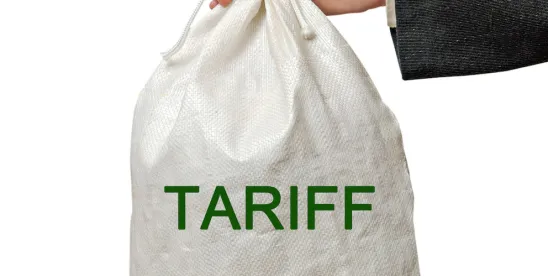Introduction
Federal government contractors operating in today’s volatile global trade environment are no strangers to sudden and sometimes dramatic shifts in material costs. With tariffs periodically imposed or adjusted by executive action, contractors frequently find themselves grappling with unexpected increases in the cost of steel, aluminum, electronics, and other imported goods. A natural question arises: Can contractors recover these increased costs under a Request for Equitable Adjustment (REA)?
This post explores the legal framework for seeking recovery of tariff-related cost increases through REAs.
Understanding the REA Mechanism
An REA is a request by a contractor to increase the contract price, extend the performance period, or both, due to a change in the contract’s terms or circumstances that increases the cost or time of performance. REAs are generally based on:
- Government-directed changes (express or constructive),
- Differing site conditions,
- Suspension of work, and/or
- Delays not caused by the contractor.
While REAs are typically associated with physical or logistical changes, economic shifts like tariff increases may also justify an adjustment — if the underlying contract and circumstances support it.
The Tariff Challenge: Is It a “Change”?
Tariff increases pose a unique challenge. They are typically imposed by the U.S. government —often after a contract has been awarded — and they raise the cost of imported materials. But unless a contractor can tie these cost increases to a government-directed change or a clause in the contract that allocates risk, recovery may be difficult.
This is where FAR 52.229-3 and FAR 52.229-6 enter the conversation.
FAR 52.229-3: Federal, State and Local Taxes
FAR 52.229-3 addresses how taxes imposed after contract award are treated. The key language provides that: “The contract price includes all applicable Federal, State, and local taxes and duties.”
However, if after the contract is awarded, the contractor becomes liable for an increase (or receives a reduction) in a federal excise tax or duty “which was not otherwise anticipated,” the contract price may be adjusted accordingly.
This clause potentially provides a path for recovery when tariffs (which are essentially federal duties) are imposed or increased after the contract award date.
To recover under FAR 52.229-3, the contractor generally must show that:
- The tariff was not in effect or anticipated at the time of award;
- The tariff is a federal duty or tax covered by the clause;
- The tariff directly increased the contractor’s cost of performance;
- The contractor timely notifies the contracting officer of the change; and
- The contractor can substantiate the increased costs attributable to the tariff.
FAR 52.229-6: Taxes – Foreign Fixed-Price Contracts
Another relevant clause in this context is FAR 52.229-6, which addresses foreign taxes and duties. This clause can potentially offer a path to recovery for tariffs imposed by a foreign government, in certain international contract settings, or where foreign supply chains are impacted.
Under FAR 52.229-6(c), if the contractor is required to pay or bear the burden of any “new or increased taxes or duties,” and those costs are due to changes in applicable laws or regulations of a foreign jurisdiction after the contract date, the contractor may be entitled to an equitable adjustment in the contract price.
Here’s what contractors need to show to trigger relief under FAR 52.229-6:
- The tariff qualifies as a “duty” or similar charge imposed by a foreign government (or potentially, in some interpretations, by the U.S. when operating abroad).
- The tariff was imposed or increased after the contract was awarded.
- The contractor notified the contracting officer promptly, as required under the clause.
- The additional costs are allocable and reasonable, and directly traceable to the tariff.
While FAR 52.229-6 may have limited application to purely domestic contracts, it remains highly relevant for contracts involving foreign performance or procurement, and those with heavy foreign supply chains, particularly those impacted by shifting international trade policy.
Timing and Notice Are Critical
FAR 52.229-3 includes a notice requirement. The contractor must notify the contracting officer promptly after becoming aware of the change in duty or tax. Failing to do so could waive the right to an adjustment. Ideally, notice should be provided within 30 days.
Proving the Cost Impact
To prevail on an REA based on the FAR or a constructive change theory, contractors should:
- Maintain detailed cost records;
- Segregate tariff-related cost increases from other pricing components;
- Show that the tariff was not foreseeable at the time of the contract award; and
- Demonstrate that the contractor took reasonable steps to mitigate the impact.
Other Potential Theories of Recovery
Besides FAR 52.229-3 and FAR 52.229-6, contractors may explore:
- Constructive change – If the government required compliance with a specification or sourcing decision that made tariffs unavoidable.
- Economic price adjustment clause (FAR 52.216-4) – Under this clause, a contractor may use an REA to recover increased costs if those costs are tied directly to the escalation of prices outlined in the clauseand meet the procedural requirements.
- Changes clause (FAR 52.243-1/-4/-5) – If the contract’s scope or specifications changed, resulting in exposure to tariffs.
- Commercial impracticability or force majeure – These are less commonly successful but may be considered in extreme cases.
Key Takeaways
- Tariff-related cost increases may be recoverable under an REA, but success depends heavily on contract terms and timing.
- FAR 52.229-3 and FAR 52.229-6 offer a path for recovery where post-award tariffs increase the cost of imported goods.
- Prompt notice and clear documentation are essential.
- Contractors should evaluate their supply chains during bidding and consider including tariff-related risk in pricing or negotiating tailored clauses.
Conclusion
While not all tariff-driven cost increases are compensable, federal contractors should not assume they must absorb these costs without recourse. Understanding the interplay between REAs, the FAR, and changes in federal and international duties is essential to preserving rights and maintaining profitability in uncertain times.





 />i
/>i

